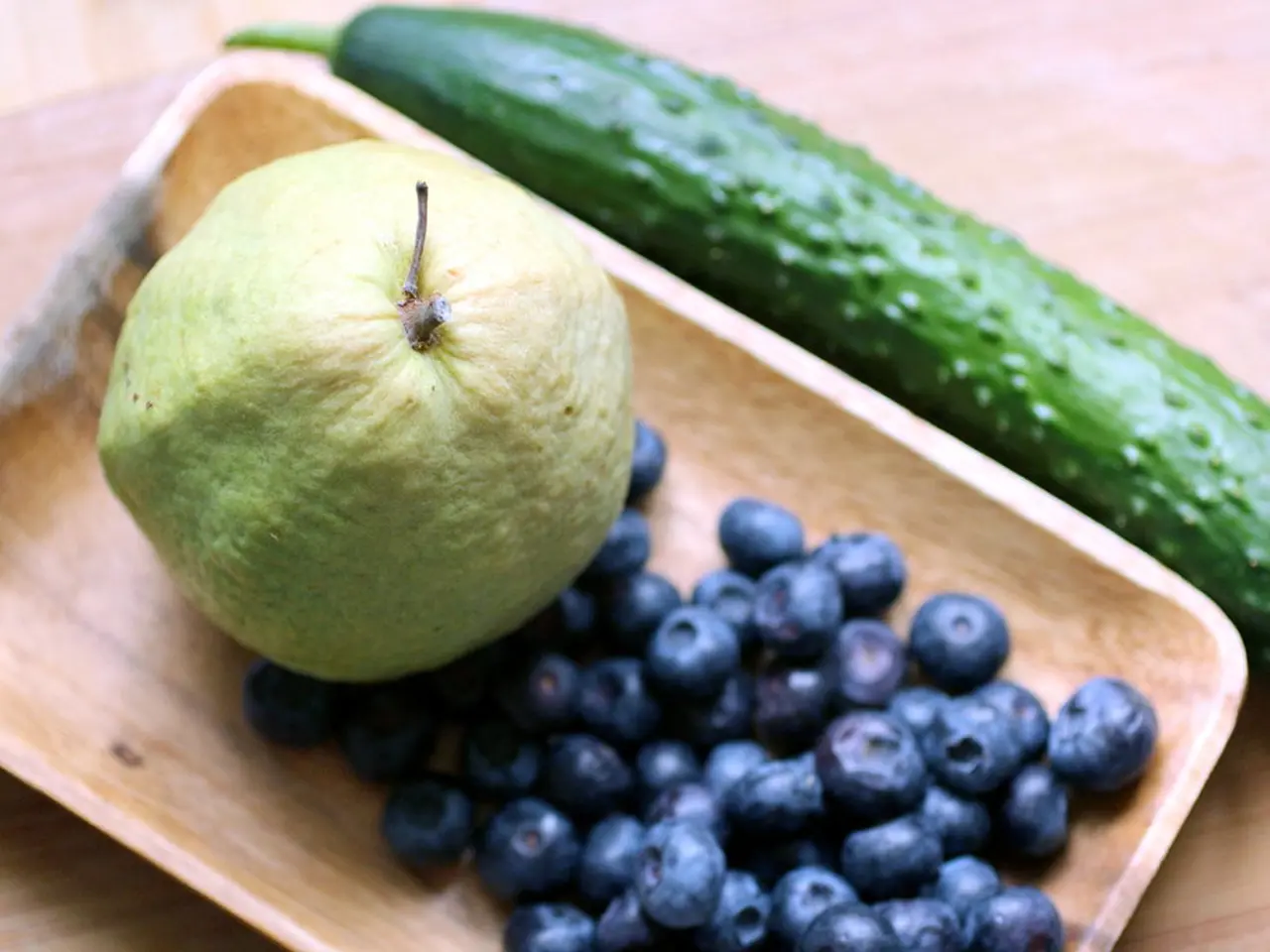Consuming More Cucumbers: 5 Key Advantages
Cucumbers, a popular vegetable in many cuisines, are not only refreshing but also packed with essential nutrients. Here's a breakdown of some key nutritional benefits that cucumbers offer.
Firstly, cucumbers are a great source of several essential minerals. An average-size, raw cucumber provides 9% of the recommended daily value (RDV) of magnesium, 14% of the RDV of Copper, 5% of the RDV of iron, and 5% of the RDV of Zinc. These minerals play crucial roles in various bodily functions, including maintaining electrolyte and fluid balance, supporting the immune system, and aiding in energy production.
Potassium is another essential mineral found in cucumbers. An average-size, raw cucumber contains 9% of the RDV of potassium, which is beneficial for individuals with high blood pressure as cucumbers are a low-sodium food. Potassium helps balance out the sodium in your diet, promoting healthy blood pressure levels.
Cucumbers also contain a significant amount of water. An average-size, raw cucumber contains about 287 grams of water, making them super hydrating. This hydration, combined with the low calorie count (an average-size, raw cucumber contains approximately 45 calories), makes cucumbers an excellent choice for those watching their weight.
In terms of vitamins, cucumbers are rich in Vitamin C, providing 9% of the RDV. Vitamin C is essential for a healthy immune system and skin. They also contain Vitamin K, providing a staggering 41% of the RDV. Vitamin K is important for building proteins that make up bones and helping blood clot.
Moreover, cucumbers may have potential benefits for heart health. Some research suggests that cucumbers may help with heart health, and a small study in Indonesia found a connection between drinking cucumber juice and lowered blood pressure. However, more studies are needed to confirm these findings.
Cucumbers are also a good source of dietary fiber, containing 1.5 grams per average-size, raw cucumber. The fiber in cucumbers can help increase bowel movements and promote a healthy digestive system.
It's worth noting that the nutritional composition of a cucumber can vary depending on the variety grown, geographic location, harvest time, and processing techniques. Recognized main types of cucumbers include slicing cucumbers (Kirby and Persian), pickling cucumbers (Gherkin), and burpless cucumbers (Asian and English cucumber). Burpless cucumbers are usually seedless and taste mild or even sweet.
When it comes to pesticide residue, cucumbers rank No. 17 on the Environmental Working Group's list of produce types with the highest pesticide residue. If you're concerned about pesticide exposure, organic cucumbers may be a good choice.
To store cucumbers for optimal nutrition, they should be refrigerated in the crisper drawer set to higher humidity and not stored with apples or tomatoes.
In conclusion, cucumbers are a hydrating, low-calorie food that offers a range of essential nutrients. They may have potential benefits for heart health and could aid in insulin regulation and hormone metabolism. As with any food, it's important to consume cucumbers as part of a balanced diet.




